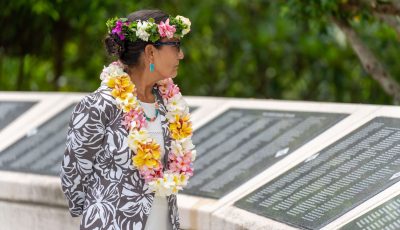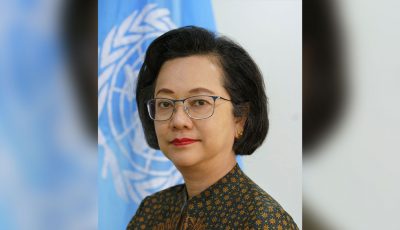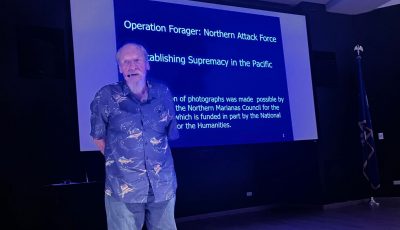How the US demonstrates a renewed focus on the Pacific and Asia
The United States continues to place more and more focus on the Asia Pacific region for a variety of reasons. This is the correct course of action to take because the Pacific Asiatic region is home to the single largest aggregate concentration of wealth on the planet, a variety of natural resources and the world’s busiest waterways are found throughout the area, and it is in the strategic interest of the United States to maintain and grow its longstanding credibility.
Examples of American activity throughout the region are abundant. Former U.S. defense secretaries have visited the area over the past several months. The current secretary of defense recently visited Singapore, the current secretary of state has visited the region, President Biden was just in the area, and several senior admirals, generals and top American intelligence officials continue to come through this part of the world.
U.S. House of Representatives Speaker Nancy Pelosi came by as well this past week, stopping in Guam, South Korea, Japan, Singapore, Malaysia, and Taiwan. While in Taiwan, Speaker Pelosi met with Taiwan’s president, lawmakers, and key leaders in microchip manufacturing. During her stay, she touted the notion of upholding democratic values and practices over autocratic values. Pelosi was the highest ranking official to visit Taiwan since House Speaker Newt Gingrich made the trip to the island back in the late 1990s.
China’s government is furious
The Chinese government is furious over this week’s visit to Taiwan by Speaker Pelosi. Chinese officials condemned the move. This visit does not bode well for President Xi Jinping because he is facing a variety of increasing domestic pressures as he prepares for the upcoming Communist Party Congress meeting this fall, which is expected to give Mr. Xi a third term.
In response to Speaker Pelosi’s trip, Chinese joint military live firing drills took place this weekend on all sides of Taiwan, using over 100 aircraft including bombers, long range weapons, and 10 large surface military vessels. Several missiles were fired with five of those missiles landing in Japan’s exclusive economic zone area.
Taiwan’s military stood down and did not conduct tactical exercises to prevent possible escalatory situations. At least four American naval warships, including the aircraft carrier U.S.S. Ronald Reagan and the amphibious assault ship U.S.S. Tripoli, remain in the immediate area. The drills have caused delays for both shippers and airline companies, while adversely affecting all seven of Taiwan’s ports. China took all these actions, plus the suspension of fruit, fish, and soft sand imports to Taiwan as ways to punish the island for receiving Speaker Pelosi.
One way to interpret these recent events
One way to interpret this week’s visit to Taiwan by Speaker Pelosi is that the United States is being unnecessarily provocative. Pelosi’s trip comes at a time when Mr. Biden is already working on Pacific Asia security matters that have been focused on relations with South Korea and Japan. Mr. Biden invited both nations to NATO summit meetings and remains committed to further strengthening military-to-military relationships with Australia, and revisiting current military arrangements with the Republic of the Philippines.
Several American allies were upset by Speaker Pelosi’s visit because they were not consulted prior to her arrival in Taiwan. The visit represented a direct challenge to China’s sovereignty over Taiwan. Many Asian nations have implicitly supported the Chinese government in part because they do not want to upset China, which is both a major trading and military power throughout the region. Taiwan alone has over a $300 billion trading relationship with China, eclipsing aggregate trade between the United States and Taiwan.
Why it is complicated
China and the U.S. are too interrelated to incentivize the other to engage in any kind of sustained military escalatory behavior. The Chinese government owns trillions of dollars of U.S. government securities, effectively acting as one of the world’s largest creditors to the United States government. Worldwide supply chains, transportation routes running near and through the Taiwan Straits supplying key goods to the United States and elsewhere will be severely restricted if hot war were to commence, causing further price hikes, hardships and uncertainties placed upon millions of people who need ready access to food, clothing, raw goods, and oil.
Furthermore, the U.S. does not have the wherewithal or the capability to engage in a massive amphibious landing now to support a major war with China on Taiwan’s mainland. Taiwan has 23 million citizens, spends about $17 billion on its military, and if we were to get into a hot war with China it would be disastrous at the onset and could also lead to nuclear war. China could immediately establish a naval blockade of key Taiwan ports, create no fly zones, and take other measures to completely cut off Taiwan. American security umbrella commitments throughout the rest of the world would also be further strained, enabling countries like Russia to take advantage of an overstretched American military force structure.
Chamorros once again caught in the middle of a foreign affairs firestorm
What this means for our Mariana Islands chain is that both the U.S. and Chinese will continue to train and prepare for war, which will require greater and greater use by the Pentagon of our ancient Pacific Island chain home.
Contradictions also abound and are illuminated from Pelosi’s visit to Taiwan. She met with the legislature and the president of Taiwan and visited the Human Rights Museum. Yet when she stopped over in Guam, Ms. Pelosi did not address the human political rights violations sponsored by the U.S. government when it comes to Chamorro self-determination. These omissions are glaring and need to be reworked by the American government before folks like Speaker Pelosi demand that democratic principles in the region trump Chinese-style authoritarianism in Taiwan.



























